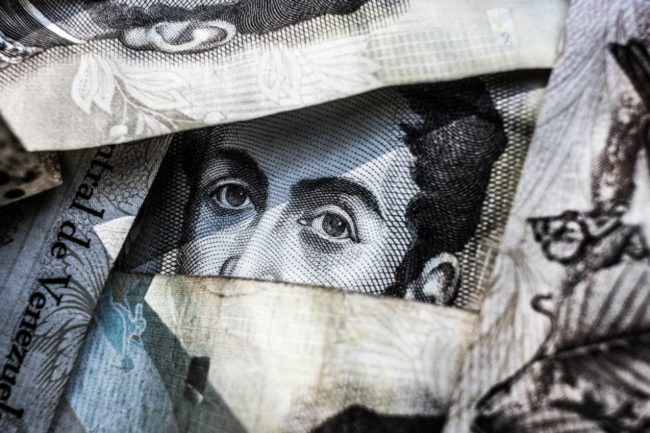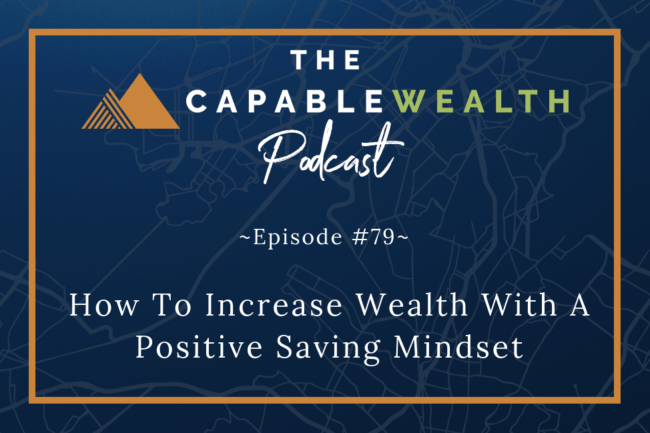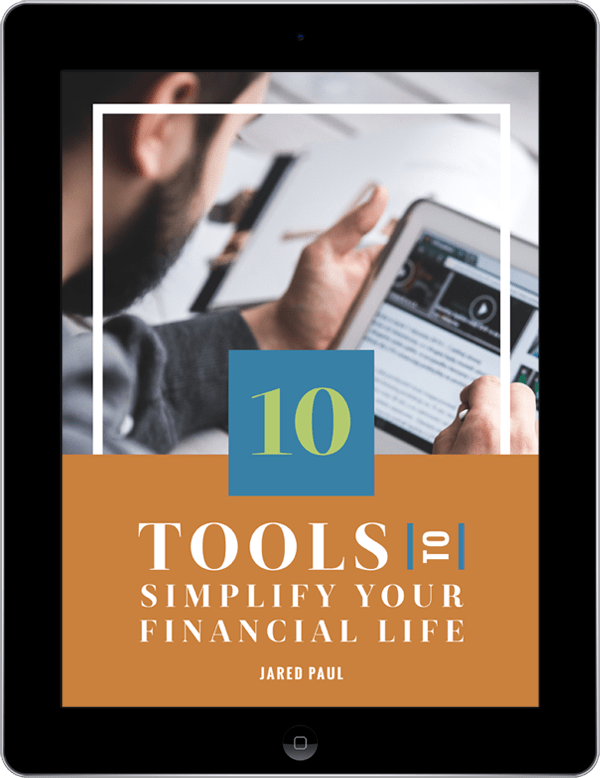This past spring, I was out for dinner with friends, and one of the couples brought up the topic of budgeting.
It’s something that had been on their minds, and they were trying their best to get their finances together and begin aggressively saving.
We had a long conversation about the different strategies people are using to save more money. One of the ideas they brought up was an often-referenced argument that over your lifetime you could save six figures by not buying coffee.
COFFEE MATH
If you run a Google search, you’ll find numerous articles about how much you could save if you took the money you spend on coffee and instead invest it over a 30+ year timeframe.
Let’s say you spend $4 on coffee each day. If every morning you decided to battle past the temptation of a joyous warm cup of Joe and instead invested that money at an average return of just 6%, over the course of 30 years, that money could turn into close to $114,000.
So, it’s true. If you were to save every penny spent on coffee and invest it, it could end up being a sizeable win for you down the line. But at what expense to your daily happiness? After all, isn’t the reason we’re working and earning money so we can meet our basic needs and then hopefully provide the ability to enjoy the little things in life?
Personally, I feel that if grabbing that hot cup of Joe in the morning is something you enjoy, go for it!
Battling with yourself every morning over if you should or shouldn’t be buying a $4 coffee will drive you mad.
Plus, there are much bigger areas for you to focus on saving money that can have a much larger impact on your financial goals.
FOCUS ON BIG WINS SO YOU CAN ENJOY THE LITTLE THINGS
A better use of your time is to focus your effort on optimizing savings on the biggest purchases, and then work your way down to smaller things like coffee.
Research has shown that every time you contemplate something or make a decision, you draw upon finite amounts of brain power. Once you’ve used up a large portion of this brain processing power, you begin to experience difficulty when faced with complex problems/choices.
The reason this is important is because every time you stop to debate if you should or should not buy something, you utilize this brain power. If we assume you have a certain amount each day/week/month, then you want to make sure you are using it in the most productive way possible. Focusing your efforts on things like coffee each day probably isn’t the best use of your brain power.
This doesn’t mean you should never create a budget and understand where your money is going; it means you need to be smart about where you focus your efforts.
Let’s look at a list of the areas you can direct your focus and have the biggest effect on your success.
AREAS TO FOCUS YOUR EFFORTS
If coffee isn’t the best area to focus your brain power, where should you?
Here are a handful of areas you should consider putting in some real effort.
Credit Score
I bet you weren’t expecting this to be the first thing to focus on, but your credit score is one of the most impactful areas in which to make positive changes.
Your credit score dictates the cost of many purchases in your life. Having a good credit score will help you get good terms and interest rates when you buy a home or car, and will qualify you for lower rates on credit cards and personal loans.
By putting a large chunk of your effort into increasing your credit score, you will create a cascading effect of benefits in all of the subsequent areas we’ll discuss. I’ll also show you just how much this could have an effect on each area.
In a future post, I’ll be writing about tips on how to improve your credit score, so be on the lookout.
Home Purchase
As you’ve probably heard, this will most likely be the biggest purchase of your life. A person’s home is usually the largest asset they own, and it can be where they spend the most money over their lifetime.
There are two ways to save on a home purchase. You can either negotiate like a pro, or you can just focus on less expensive homes. Better yet, you can focus on less expensive homes AND negotiate like a pro. Double win!
I’m not going to try to calculate the financial effect of buying a less expensive home because it’s too subjective for me to create hard numbers. Each region of the country has different spreads between “expensive” homes and “cheap” homes. We’ll just focus on the national averages, as well as negotiating.
The median home price in the US in 2014 was $188,900. Also, depending on your credit score, your interest rates could vary by up to 1.5%. I’m seeing rates as low as the 3’s, so let’s assume you could have an interest rate between 3.75% and 5.25%.
If you have excellent credit and would be able to get close to that 3.75% interest rate, over the course of a 30-year mortgage on the median US home cost, you would pay a total of $314,936.
If you have a poor credit score and got an interest rate closer to 5.25%, you would end up paying a total of $375,522.
Wow!
Over the course of the mortgage, if you had an excellent credit score, this means you would save around $60,586.
Now, let’s say you were able to negotiate a 10% reduction in price (This might mean you have to keep looking until you find an owner willing to negotiate). Over the life of the mortgage, that 10% reduction in price will equate to an additional savings of $31,492.
So, by having an excellent credit score and negotiating, you will have created a windfall of over $92,000 in savings.
And the best part – once you’ve locked this in, you don’t have to do anything for the remaining 30 years to experience these savings.
Education Costs For Children
With the exponential rise in college tuition over the last couple of decades, paying for your children to go to school has now become one of the biggest expenses a family can incur.
The average annual tuition for a public university is $9,650 (in-state), $24,930 (out-of-state), and for a private university it is $33,480 (Tuition Stats). Multiply that by 4 years and you will pay somewhere in the range of $38,600 and $133,920 for each kid. And those are based on averages and don’t include a further price increase.
Another way to lower the cost is to invest a lot of time proactively seeking out scholarships. Most people are unaware of just how many scholarships are available. But with some real digging, you can find thousands of additional dollars to help toward your child’s education.
Let’s say your child goes to an in-state public school, forgoing the high-priced private university. And let’s say you are able to get an additional $5,000 per year in scholarships (This is not a stretch if you look at the number of potential scholarships and are willing to do some work).
By taking these steps, it could end up saving you over $115,000 for each child.
Wedding
Whether it’s your own or you’re paying for your child’s, weddings have a way of racking up the bill rather quickly. I am hearing more and more about people spending over $100,000 (and I’m not talking about celebrity weddings).
Yes, it’s your special day, but does it have to cause such a financial strain on your long-term lifestyle?
The average cost of a wedding in the U.S. in 2016 was $35,329.
I have two close friends who were able to put on an amazing wedding and keep the cost under $10,000. I’ll tell you first hand that it was just as good (if not, better) than a lot of the high-priced weddings I’ve been to.
My friends’ decision to keep wedding costs under control helped them save over $25,000 versus the average. Great job!
ADDING IT ALL UP
If we add up the savings on these three areas, the total savings comes to a whopping $332,000!
You can see that the impact you can have by focusing on the big-ticket items will far outweigh fretting over your $4 coffee each day.
If you are able to do both, more power to you!
But if you’re finding it difficult to be successful in all areas of savings, then make sure your energy is going to the most impactful endeavors.
BUT THAT’S NOT ALL
I purposefully left something out until now.
The math that is always calculated on how much you are losing by buying coffee each day doesn’t just factor in savings; it factors in lost investment return. For us to create a true apples-to-apples comparison, we need to calculate how much we could have grown our savings into by investing it.
I ran the numbers based on the same investment return that is typically used in the coffee calculation: 6%. Each of the areas has different timeframes for how long you will be able to invest, so I adjusted for that as well. I also used national averages for things like age of marriage, retirement age, etc.
So, what was the final number we get for how much of a positive financial impact you could have on your life by just focusing on these three areas?
Grand Total: $782,860!
That’s enough to fund your coffee addiction and still have over $650,000 left over. Not too shabby.
TREAT YOURSELF
As you can see, by focusing on these big areas you can have a huge impact on your long-term financial success. And this is just three purchases. We didn’t touch upon things like a car purchase, buying electronics, household furniture, medical bills, etc.
Some of these areas can be massive undertakings and require a lot of time and effort. While you’re putting in the work it takes to be successful, you’ll find you often need to take a break and reenergize yourself in order to keep going.
Heck, while you’re recharging the batteries, go treat yourself to a hot cup of coffee, or maybe a venti mocha with whipped cream. I know I do! 😉
Capably Yours,
















